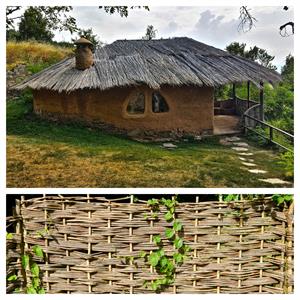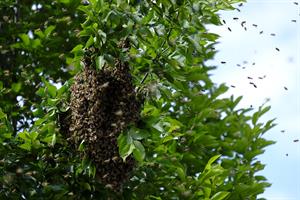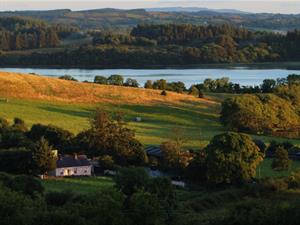
PUMPA - SMART LEARNING
எங்கள் ஆசிரியர்களுடன் 1-ஆன்-1 ஆலோசனை நேரத்தைப் பெறுங்கள். டாப்பர் ஆவதற்கு நாங்கள் பயிற்சி அளிப்போம்
Book Free DemoI will arise and go now, and go to Innisfree,
And a small cabin build there, of clay and wattles made:
Nine bean-rows will I have there, a hive for the honeybee,
And live alone in the bee-loud glade.
And a small cabin build there, of clay and wattles made:
Nine bean-rows will I have there, a hive for the honeybee,
And live alone in the bee-loud glade.
Explanation:
The speaker begins the poem by announcing his intentions to the reader, stating that he will "arise and go now" to the isle of Innisfree.

Innisfree, Ireland
If you observe, you would realise that the word "go" is used twice in the first line. This is to emphasise the importance of the speaker's desire to go to Innisfree. The speaker has set his mind on his journey to Innisfree.
The poem’s second line gives more information about what he plans to do when he arrives at Innisfree. He intends to build himself a small cabin using clay and wattles. The line reveals the speaker's intention to live a minimal life. What he desires most is to live amid nature. This is also one of the major themes of the poem.

The speaker intends to live in a cabin (up); wattle fence (down)
The speaker further states that he dreams of having nine rows of bean plants and a hive for honeybees at his cabin in Innisfree.
The speaker is particular about having nine bean-rows. This could be an allusion to the nine fruits of the holy spirit, namely love, joy, peace, patience, kindness, goodness, faithfulness, gentleness, and self-control.

Bean-rows - top (left) and front (right) views
Also, speaking of the honeybee, there could be yet another allusion. Bee is a symbol of devotion and selflessness. The aspect of devotion could be seen in the way they revere their queen. On the other hand, honeybees work not merely for themselves. As St. John Chrysostom wrote, “The bee is more honoured than other animals, not because she labours, but because she labours for others".** Moreover, beekeeping is an ancient Catholic tradition, and hives were frequently kept on monastery grounds to provide honey for medicinal, food, and wax purposes.
Hence, through beekeeping, the speaker could be desiring a life that is selfless, devoted, and, at the same time, satisfies just the primary needs of a human, namely, food, livelihood, and medicine.
Hence, through beekeeping, the speaker could be desiring a life that is selfless, devoted, and, at the same time, satisfies just the primary needs of a human, namely, food, livelihood, and medicine.

Bees and their hive
As we come to the final line of the first stanza, we are told that the speaker wants to live alone in an area filled with the sound of bees. It is ironic because bees survive in a company while the speaker desires to live alone. However, what is evident through the first stanza is that the speaker desires to live a simple life in accordance with nature.

The speaker desires to lead a simple life amid nature
Meanings of difficult words:
S.No | Words | Meanings |
1 | Arise | To get up |
2 | Innisfree | An island within Lough Gill, in Ireland |
3 | Cabin | A small, simple house made of wood or clay |
4 | Clay | Thick, heavy soil that is soft when wet, and hard when dry or baked, used for making bricks and containers |
5 | Wattle | A building material consisting of sticks, that are mixed with earth or clay |
6 | Hive | A structure or place where bees live, either built by people or made by the bees themselves |
7 | Bee-loud | Filled with the sound of bees |
8 | Glade | A small area of grass without trees in a forest |
Reference:
National Council of Educational Research and Training (2006). Beehive. The Lake Isle of Innisfree- W. B. Yeats (pp 54). Published at the Publication Division by the Secretary, National Council of Educational Research and Training, Sri Aurobindo Marg, New Delhi.
**https://www.blackburnehouse.co.uk/post/the-symbolic-use-of-bees